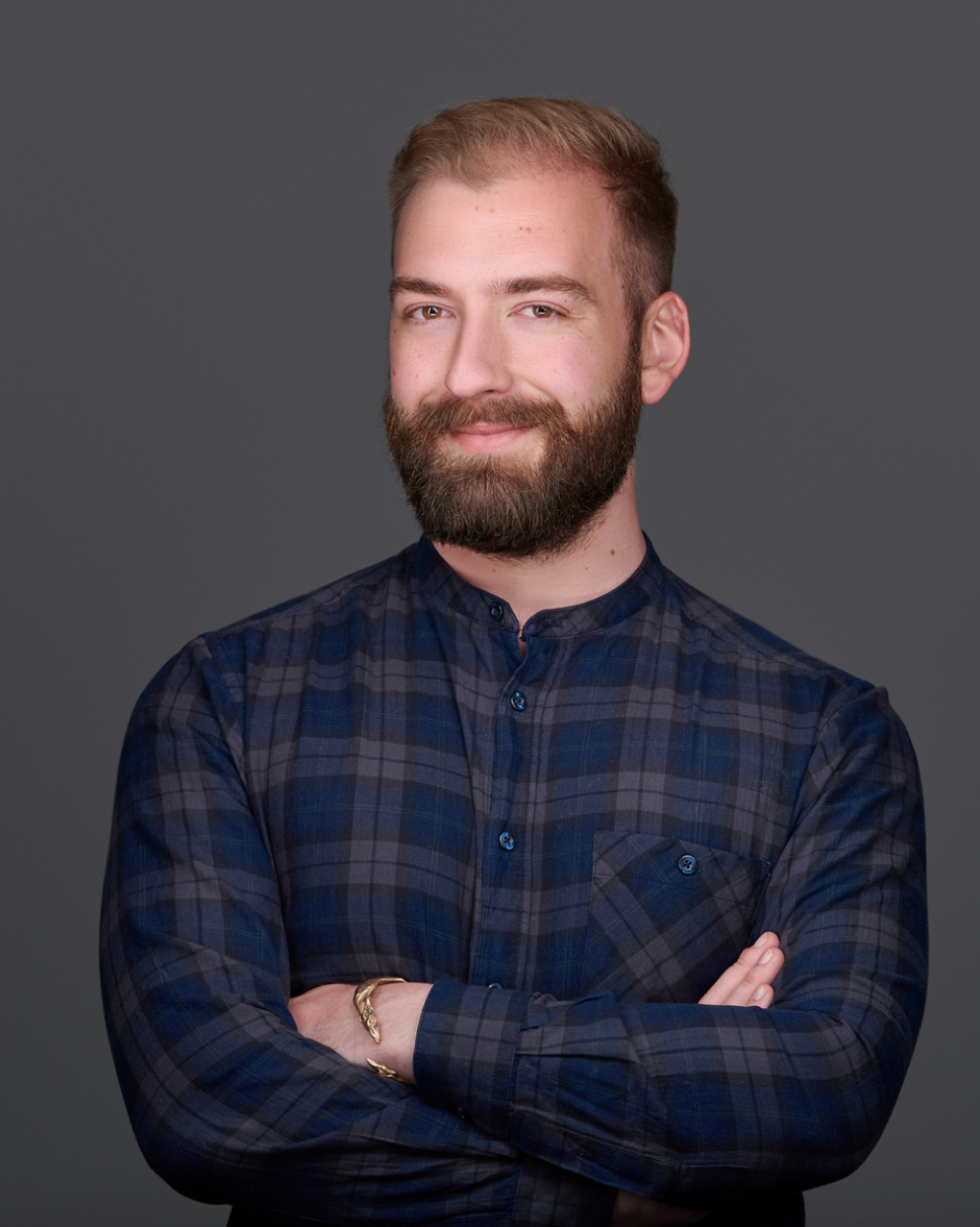In this week’s BabelChat, Kaleb Skrzypkowski shares with us his secrets for B2B marketing strategy success.
Kaleb’s first exposure to marketing was as a 13-year old boy, glued to the television. In many ways that have gone on to matter, he hasn’t switched off since.
In the two years since Kaleb joined us, he’s created and executed strategies for all kinds of clients. Despite their differences in market, he can attribute his success to several core principles developed across years spent on the job, in the industry, in front of the screen.What lessons has he learned on the way, how has the industry changed in this time, and why would he recommend that you don’t skip that ad break, next time it appears?
Prefer to chat? So does Kaleb. To chat about your marketing strategy, drop him a message now.
Thomas Brown: How did you find your way into strategy?
Kaleb Skrzypkowski: As a kid, I loved watching commercials. When we went to the cinema, I would want to go early so I could catch them all before the main showing. My siblings always laughed at me because I was the same way watching TV at home. When a commercial break came on they wanted to switch channels, but I was fascinated. Some of the commercials I loved. Some of them felt cheap, or salesy, or cringey. It didn’t matter; the fun was in analysing them and how they made me feel. Even then, I couldn’t help myself.
My first marketing role involved creating social media posts for a restaurant group. I loved it, but I quickly noticed how important it was to have a strategy that tied everything together. You can run your marketing month by month, but without an overarching strategy behind it, your focus is inevitably short-term, and any results you generate will be difficult to quantify.
When I moved agency-side, I had the opportunity to get hands-on with the strategic side of the industry for the first time. It was at this point that I became fascinated with strategy specifically. I learned how to analyse numbers, how to draw insights from that analysis, how to research a market and understand where the opportunities were. I learned how to put together plans that promised powerful campaigns with meaningful impacts you could see and feel. Marketing that makes a difference to everyone it touches.
How did moving agency-side facilitate that shift?
In any agency environment, you’re typically working with multiple accounts at any given time. This means different businesses, often working in different industries, in different ways. I loved it straight away because I'm quite entrepreneurial, so getting to learn about how different businesses are set up and how each of them approaches marketing was amazing. Through that exposure, you really start to understand the principles of marketing. I don’t just mean strategy; I’m talking about the fundamentals on which marketing is built. Tactics will inevitably vary from situation to situation but certain principles repeat unchanged. That’s true whether you’re delivering marketing for a restaurant group, an IT firm, or a fitness chain.
Principles can also be personal. What principles do you hold yourself to when creating a strategy?
Definitely. My number-one principle is that less is more. As marketers, we’re often drawn to work on many things at the same time. Even in-house, working on a single campaign, you might be juggling several different channels, assets, or platforms. But that doesn’t mean your focus needs to be scattered or your goals diluted. Set yourself a SMART goal and stick to it as your priority because that’s when you’ll start to become effective and win in that area.
The industry wasn’t always multi-channel. How have you seen it change over the course of your career?
I've seen some very interesting changes over the past 15 years, but the biggest one for me has been the growing demand for authenticity. Today, whether you’re in B2B or B2C, your company and its communications have to come across as being real. Nobody has time for marketing that reads as cringey or irrelevant or overly promotional. Thirteen-year-old me, sitting in front of the TV at home, would have told you the same thing, but interestingly, so would my siblings. They’d have sooner run out of the room than sit through a commercial break and I think that’s a great way of looking at how most people view advertising today. We don’t believe in those kinds of stories, because most of the time there isn’t a story there.
Companies often overpromise. They use language that we don't use. The result is marketing that doesn’t speak to us. Some of the most successful marketing today is influencer marketing because that inherently skews towards being more real and trustworthy. And within influencer marketing, it’s the individuals showcasing their lives in very raw, unfiltered ways who are seeing the most success. The baking Youtuber who simply films themselves in the kitchen, with no editing or fancy transitions. The TikTok bodybuilder who shoots and posts short videos of themselves exercising. Their audiences are just looking for someone to bake with. Someone to join them in the gym for twenty minutes while they work out.
How can a strategist apply authenticity when creating a plan, and how do you?
B2B can learn a lot from the types of influencer content we’ve just discussed. I’d go so far as to say it has to if it wants to keep being relevant. Not in the sense that everyone needs to start leveraging influencers, but in the way that they approach their content. In the B2B world there’s so much jargon and professional language that it's becoming less and less impactful when you think that most audiences, most people, just want to connect. Whenever brands can be bold enough to change their language and be more authentic, their marketing will become so much more impactful. That’s definitely the way forward for any company, in any industry, looking to build meaningful connections with people.
Particularly in the B2B space, this does require a brand to be bold. Most B2B companies and their decision-makers are preconditioned to communicate in a way that’s more corporate. It can take quite a lot of convincing to persuade them to shift away from that direction.
Whenever my team is putting any marketing asset such as an article or social media post together, I'm always trying to analyse it from the perspective of: is it actually helpful? Do I actually learn something? Do we give some kind of value or is it just a bunch of hollow words that don't really mean anything? That helps us to stay authentic. To keep our marketing real.
If you could sit across from 13-year-old Kaleb, what advice would you give him?
I’d tell him to stay open-minded because sometimes the smallest tactic can have the biggest influence. To always be trying new tools, new ways of working, because technology is only going to get better and better but it requires skill to use it properly. To listen, because one line from a business conference can inspire success in the most unexpected of ways.
I’d tell him to deliver marketing with value, because marketing has to be about enriching people’s lives if you want anyone to care about it. To be true to yourself and your clients in everything you do, because marketing needs principles and personality to shine. To really analyse how people engage with you, so you know how to give them something that will help them. That’s how you’ll come up with strategies that help businesses in meaningful ways, which is all I’ve ever wanted to do.
Heading
Separated they live in Bookmarksgrove right at the coast of the famous Semantics, large language ocean and many more stuff and more more more


Tom is BabelQuest's Principal Copywriter. He has a PhD in Creative Writing from the University of Southampton and is a novelist with Sparkling Books.


.png?width=50)

.png?width=50)
.png?width=50)


































